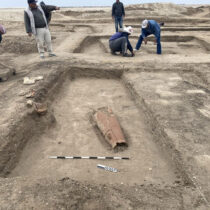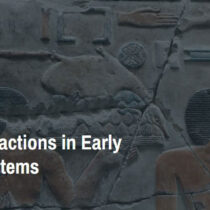The rapid changes in the economy, politics and technology of our century have influenced the course of development and the structure of the European museums. The continuous need for democratization and the new alternatives in financing have led museums to study and re-define their relationship with their public. These changes have created -and continue to create- tensions in the museums, since they stress the need for a re-examination of their value and role in modern society. The education of and the communication with the public has become one of the most fundamental functions of a modern museum To achieve this objective, many museums are conducting a research of their public, in order to understand the motives, expectations and interests of their visitors, and to evaluate the success of exhibitions, programs and other services they offer. The purpose of this article is to explain what the research and evaluation of the museum public is, and how the results of such surveys can contribute to the improvement of the function and performance of a museum.
Research and Evaluation of the Museum Public
22 Aug 2012
by Archaeology Newsroom
- A
- A
- A

